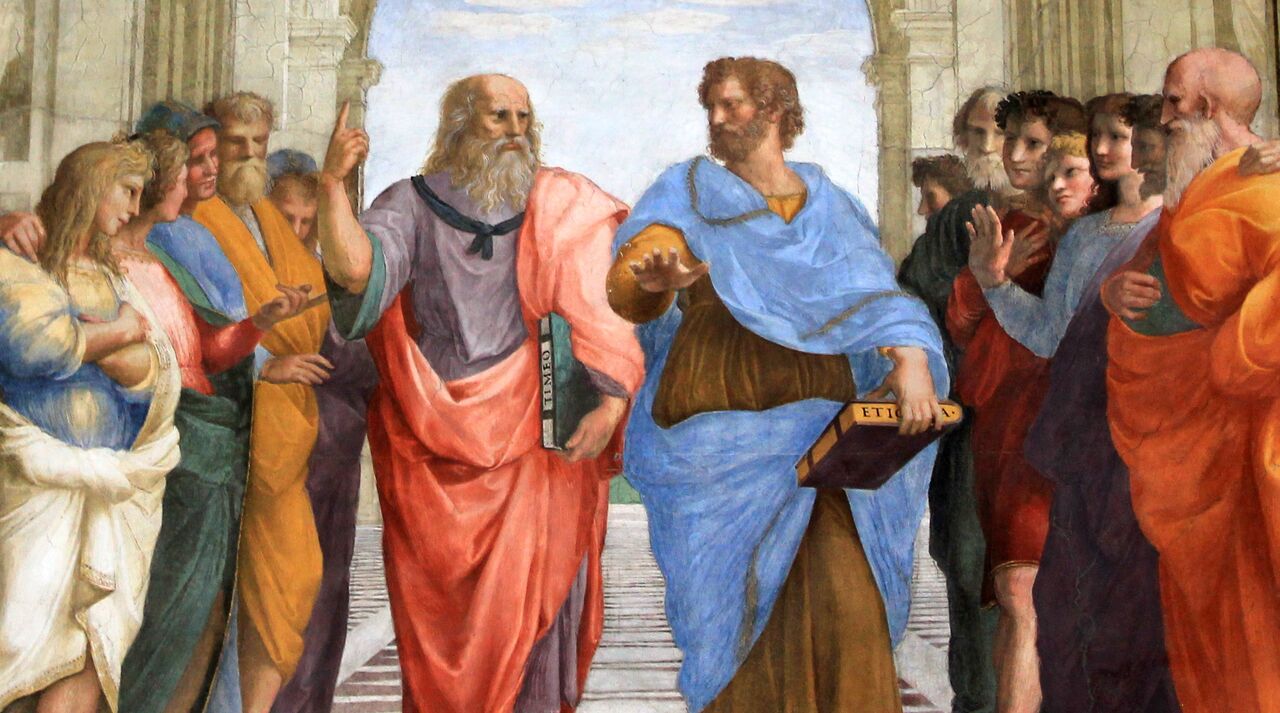The story of the Israelites in Egypt and the Exodus is, of course, best known from the biblical account—chiefly, the Torah (Pentateuch), the first five books of the Hebrew Bible, ascribed by text and tradition to the hand of Moses himself, who was on the scene during the latter half of the second millennium b.c.e. But the Exodus account is by no means limited to the Bible. Numerous foreign, non-Jewish authors of classical antiquity (a period spanning from the eighth century b.c.e. to the fifth century c.e.) make reference to these events.
Below are a selection of such works (by no means exhaustive), arranged chronologically from earliest to latest. Some authors speak at length on the subject; others in passing reference. (Note that some of the lengthier passages below have been cropped for concision.) Not all of the texts quoted from have survived in initial form—many are only preserved through their quotations by other authors (such as the first-century c.e. Jewish historian, Josephus). A good resource for detailed study of each of these texts in full—including various sourcing and commentary, original languages and translation—is Greek and Latin Authors on Jews and Judaism, Vol. 1 (1974), published by the Israel Academy of Sciences and Humanities.
Some of these classical accounts are sympathetic to Israel’s plight, some unconcerned, some propagandistic or nationalistic in nature, and some even anti-Semitic (following what appears to have been a “face-saving” Egyptian narrative about events—note especially the classical Egyptian authors Manetho, Lysimachus and Chaeremon). Among these authors, historians and philosophers, many weird and wonderful theories abound, relating to various interpretations of the events described. Several particulars are quite humorously simplistic, conflicting, and in certain cases derogatory toward Israelite worship. Yet in all of this, it must be remembered the polytheistic melee in which these texts were composed, the nonchalance with which this subject is handled by the foreign authors, and the separation between the Jewish and Greco-Roman worlds, including the language barrier and the lack of familiarity with the Jewish accounts at the time. (The Jewish historian Josephus took many of these accounts on his work Against Apion, addressing many of these texts and rather humorously criticizing errors in logic among those who “put a few things together by hearsay, and insolently abuse the world, and call these writings by the name of Histories.”)
Despite this, what these texts do dramatically, resoundingly and invaluably attest to—in spite of the biases of the authors—is a core historicity to the Exodus events described as a whole. As such, even the most propagandistic and anti-Semitic of them in a sense only serve to validate the historicity of this fulcrum event in Israel’s biblical history.
Herodotus (fifth-century b.c.e. Greek historian)
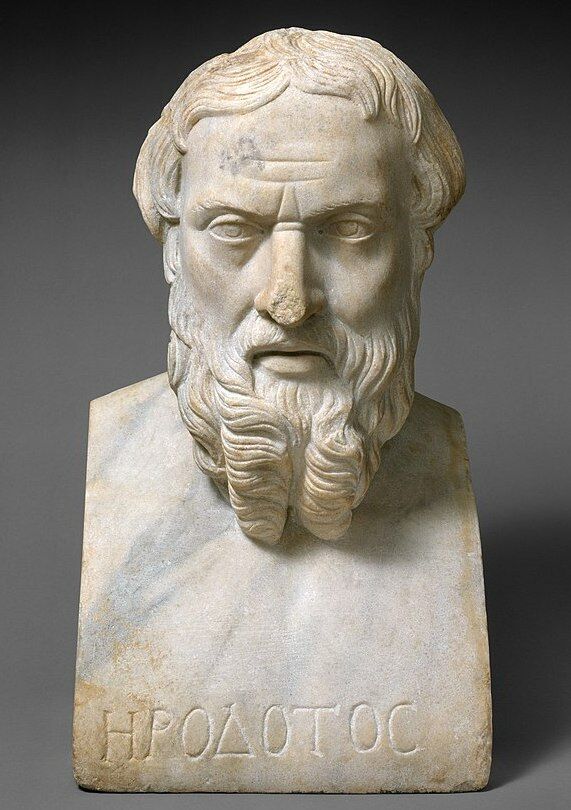
Historiae. (Note: Herodotus nowhere in his works expressly refers to Jews or Israelites—there is some debate that these “Phoenicians” mentioned below included the Israelites.)
“These Phoenicians dwelt in old time, as they say, by the Red Sea. Passing over from thence, they now inhabit the sea coast of Syria. … The Phoenicians and the Syrians of Palestine acknowledge that they learned the custom [of circumcision] from the Egyptians …. These are the only nations that circumcise, and it is seen that they do just as the Egyptians.”
Hecataeus of Abdera (fourth-century b.c.e. Greek historian)
Aegyptiaca
“In ancient times a great plague occurred in Egypt, and many ascribed the cause of it to the gods, who were offended with them. For since the multitudes of strangers of different nationalities, who lived there, made use of their foreign rites in religious ceremonies and sacrifices, the ancient manner of worshipping the gods, practised by the ancestors of the Egyptians, had been quite lost and forgotten. Therefore the native inhabitants concluded that, unless all the foreigners were driven out, they would never be free from their miseries.
“All the foreigners were forthwith expelled … the majority of the people descended into a country not far from Egypt, which is now called Judaea and at that time was altogether uninhabited.
“The leader of this colony was one Moses, a very wise and valiant man, who, after he had possessed himself of the country, amongst other cities, built that now most famous city, Jerusalem, and the temple there, which is so greatly revered among them. He instituted the holy rites and ceremonies with which they worship God; and made laws for the methodical government of the state. He also divided the people into twelve tribes, which he regarded as the most perfect number; because it corresponds to the twelve months within a whole year.
“He made no representation or image of gods, because he considered that nothing of a human shape was applicable to God; but that heaven, which surrounds the earth, was the only God, and that all things were in its power.”
Manetho (third-century b.c.e. Egyptian priest)
Aegyptiaca. (His original text is lost. The following is quoted at length by Josephus in Book I of Against Apion, in two parts—first, concerning the arrival of the “Hyksos”; second, concerning an Exodus at the hands of Osarsiph/Moses.)
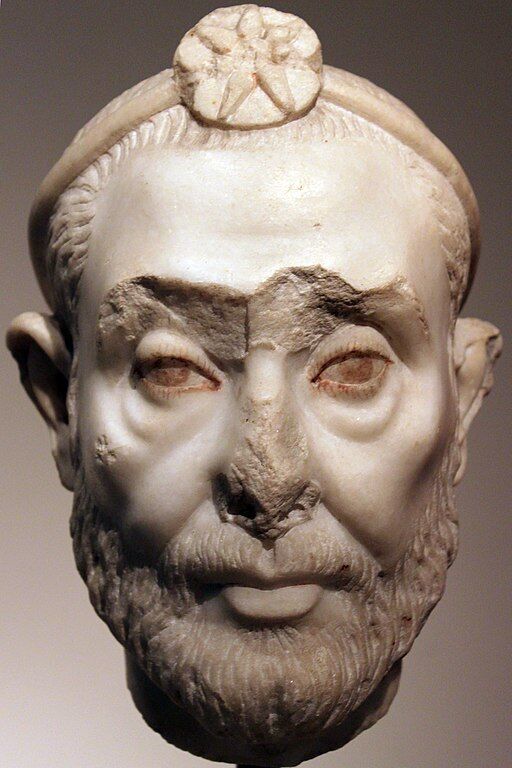
Part One:
“There was a king of ours whose name was Timaus. Under him it came to pass, I know not how, that God was averse to us, and there came, after a surprising manner, men of ignoble birth out of the eastern parts, and had boldness enough to make an expedition into our country, and with ease subdued it by force, yet without our hazarding a battle with them. So when they had gotten those that governed us under their power, they afterwards burnt down our cities, and demolished the temples of the gods ….
“This whole nation was styled HYCSOS, that is, Shepherd-kings: for the first syllable HYC, according to the sacred dialect, denotes a king, as is SOS a shepherd; but this according to the ordinary dialect; and of these is compounded HYCSOS: but some say that these people were Arabians … their descendants kept possession of Egypt five hundred and eleven years.
“The kings of Thebais and the other parts of Egypt made an insurrection against the shepherds, and that there a terrible and long war was made between them. Under a king, whose name was Alisphragmuthosis, the shepherds were subdued by him ….
“They went away with their whole families and effects, not fewer in number than two hundred and forty thousand, and took their journey from Egypt, through the wilderness, for Syria; but that as they were in fear of the Assyrians, who had then the dominion over Asia, they built a city in that country which is now called Judea, and that large enough to contain this great number of men, and called it Jerusalem.
“This nation, thus called Shepherds, were also called Captives, in their sacred books.”
Part Two:
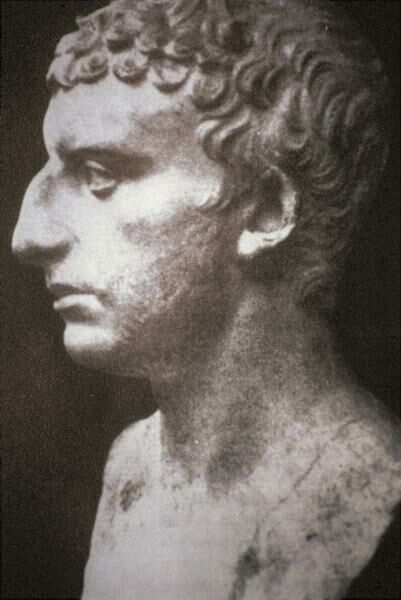
“[A prophet] told [the pharaoh Amenophis] that he might see the gods, if he would clear the whole country of the lepers and of the other impure people; the king was pleased with this injunction, and got together all that had any defect in their bodies out of Egypt; their number was eighty thousand, whom he sent to those quarries which are on the east side of the Nile, that they might work in them, and might be separated from the rest of the Egyptians. …
“[These people] appointed themselves a ruler out of the priests of Heliopolis, whose name was Osarsiph, and they took their oaths that they would be obedient to him in all things. He then, in the first place, made this law for them, that they should neither worship the Egyptian gods, nor should abstain from any one of those sacred animals which they have in the highest esteem, but kill and destroy them all; that they should join themselves to nobody but to those that were of this confederacy.
“When he had made such laws as these, and many more such as were mainly opposite to the customs of the Egyptians, he gave order that they should use the multitude of the hands they had in building walls about their city, and make themselves ready for a war with king Amenophis …. [Osarsiph took] into his friendship the other priests, and those that were polluted with them, and sent ambassadors to those shepherds who had been driven out of the land by Tefilmosis to the city called Jerusalem; whereby he informed them of his own affairs, and of the state of those others that had been treated after such an ignominious manner, and desired that they would come with one consent to his assistance in this war against Egypt. …
“And now Amenophis the king of Egypt, upon his being informed of their invasion … assembled the multitude of the Egyptians, and took counsel with their leaders, and sent for their sacred animals to him, especially for those that were principally worshipped in their temples, and gave a particular charge to the priests distinctly, that they should hide the images of their gods with the utmost care; he also sent his son Sethos … being but five years old, to a friend of his.
“He then passed on with the rest of the Egyptians, being three hundred thousand of the most warlike of them, against the enemy, who met them. Yet did he not join battle with them; but thinking that would be to fight against the gods, he returned back and came to Memphis, where he took [the bull] Apis and the other sacred animals which he had sent for to him, and presently marched into Ethiopia, together with his whole army and multitude of Egyptians; for the king of Ethiopia was under an obligation to him, on which account he received him, and took care of all the multitude that was with him, while the country supplied all that was necessary for the food of the men. He also allotted cities and villages for this exile, that was to be from its beginning during those fatally determined thirteen years. Moreover, he pitched a camp for his Ethiopian army, as a guard to king Amenophis, upon the borders of Egypt. And this was the state of things in Ethiopia.
“But for the people of Jerusalem … they did not only set the cities and villages on fire, but were not satisfied till they had been guilty of sacrilege, and destroyed the images of the gods, and used them in roasting those sacred animals that used to be worshipped, and forced the priests and prophets to be the executioners and murderers of those animals …. It was also reported that the priest, who ordained their polity and their laws, was by birth of Heliopolis, and his name Osarsiph, from Osyris, who was the god of Heliopolis; but when he was gone over to these people, his name was changed, and he was called Moses.
“After this, Amenophis returned back from Ethiopia with a great army, as did his son … both of them joined battle with the shepherds and the polluted people, and beat them, and slew a great many of them, and pursued them to the bounds of Syria.”
For more about Manetho’s account, see our articles here and here.
Polemo of Ilium (second-century b.c.e. Greek geographer)
Historia Graeca
“In the reign of Apis the son of Phoroneus, a part of the Egyptian army was expelled from Egypt and established itself in the country called Syria-Palaestina not far from Arabia.”
Lysimachus (second- or first-century b.c.e. Egyptian author)
Aegyptiaca
“The people of the Jews being leprous and scabby, and subject to certain other kinds of distempers, in the days of Bocchoris, king of Egypt, fled to the temples, and got their food there by begging: and as the numbers were very great that were fallen under these diseases, there arose a scarcity in Egypt. Hereupon Bocehoris, the king of Egypt, sent some to consult the oracle of Hammon about this scarcity. The god’s answer was this, that he must purge his temples of impure and impious men, expelling them out of those temples into desert places; but as to the scabby and leprous people, he must drown them … and by this means the land will bring forth its fruits.
“Upon Bocchoris’s having received these oracles, he called for their priests, and the attendants upon their altars, and ordered them to make a collection of the impure people, and to deliver them to the soldiers, to carry them away into the desert; but to take the leprous people, and wrap them in sheets of lead, and let them down into the sea. Hereupon the scabby and leprous people were drowned, and the rest were gotten together, and sent into desert places, in order to be exposed to destruction. In this case they assembled themselves together, and took counsel what they should do, and determined that, as the night was coming on, they should kindle fires and lamps, and keep watch; that they also should fast the next night, and propitiate the gods, in order to obtain deliverance from them.
“On the next day there was one Moses, who advised them that they should venture upon a journey, and go along one road till they should come to places fit for habitation. He charged them to have no kind regards for any man, nor give good counsel to any, but always to advise them for the worst; and to overturn all those temples and altars of the gods they should meet with. … [S]o [they] traveled over the desert.
“The difficulties of the journey being over, they came to a country inhabited, and there they abused the men, and plundered and burnt their temples; and then came into that land which is called Judea, and there they built a city, and dwelt therein.”
Diodorus Siculus (first-century b.c.e. Greek historian)
Bibliotheca Historica
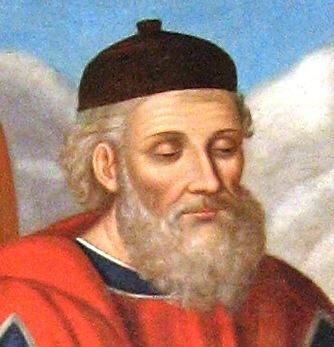
“Now the Egyptians say that also after these events a great number of colonies were spread from Egypt over all the inhabited world. … They say also that those who set forth with Danaus, likewise from Egypt, settled what is practically the oldest city of Greece, Argos, and that the nation of the Colchi in Pontus and that of the Jews, which lies between Arabia and Syria, were founded as colonies by certain emigrants from their country; and this is the reason why it is a long-established institution among these two peoples to circumcise their male children, the custom having been brought over from Egypt. … Among the Jews Moyses referred his laws to the god who is invoked as Iao.”
Strabo of Amasia (first-century b.c.e. Greek geographer)
Geographica
“In Egypt for example, territory has been set apart for a Jewish settlement, and in Alexandria a great part of the city has been allocated to this nation. … And so this nation has flourished in Egypt because the Jews were originally Egyptians and because those who left that country made their homes near by; and they migrated to Cyrene because this country bordered on the kingdom of Egypt, as did Judaea.
“Moses, namely, was one of the Egyptian priests, and held a part of Lower Egypt, as it is called, but he went away from there to Judaea, since he was displeased with the state of affairs there, and was accompanied by many people who worshipped the Divine Being. For he said, and taught, that the Egyptians were mistaken in representing the Divine Being by the images of beasts and cattle … Moses, saying things of this kind, persuaded not a few thoughtful men and led them away to this place where the settlement of Jerusalem now is.”
Gnaeus Pompeius Trogus (first-century b.c.e. Gallic historian)
Historiae Philippicae
“The Egyptians, being troubled with scabies and leprosy and warned by an oracle, expelled him [Moyses], with those who had the disease, out of Egypt, that the distemper might not spread among a greater number. Becoming leader, accordingly, of the exiles, he carried off by stealth the sacred utensils of the Egyptians ….
“Thus Moyses, having reached Damascus, his ancestral home, took possession of mount Sinai, on his arrival at which, after having suffered together with his followers, from a seven days’ fast in the deserts of Arabia, he, for all time, consecrated the seventh day, which used to be called Sabbath by the custom of the nation …. After Moyses, his son Arruas, was made priest to supervise the Egyptian rites.”
Chaeremon (first-century c.e. Egyptian priest)
Aegyptiaca Historia
“The goddess Isis appeared to Amenophis in his sleep, and blamed him that her temple had been demolished in the war. But that Phritiphantes, the sacred scribe, said to him, that in case he would purge Egypt of the men that had pollutions upon them, he should be no longer troubled with such frightful apparitions.
“Amenophis accordingly chose out two hundred and fifty thousand of those that were thus diseased, and cast them out of the country. Moses and Joseph were scribes, and Joseph was a sacred scribe; that their names were Egyptian originally; that of Moses had been Tisithen, and that of Joseph, Peteseph. These two came to Pelusium, and lighted upon three hundred and eighty thousand that had been left there by Amenophis, he not being willing to carry them into Egypt; these scribes made a league of friendship with them, and made with them an expedition against Egypt. Amenophis could not sustain their attacks, but fled into Ethiopia, and left his wife with child behind him, who lay concealed in certain caverns, and there brought forth a son, whose name was Messene, and who, when he was grown up to man’s estate, pursued the Jews into Syria, being about two hundred thousand, and then received his father Amenophis out of Ethiopia.”
Tacitus (first-century c.e. Roman historian)
Historiae
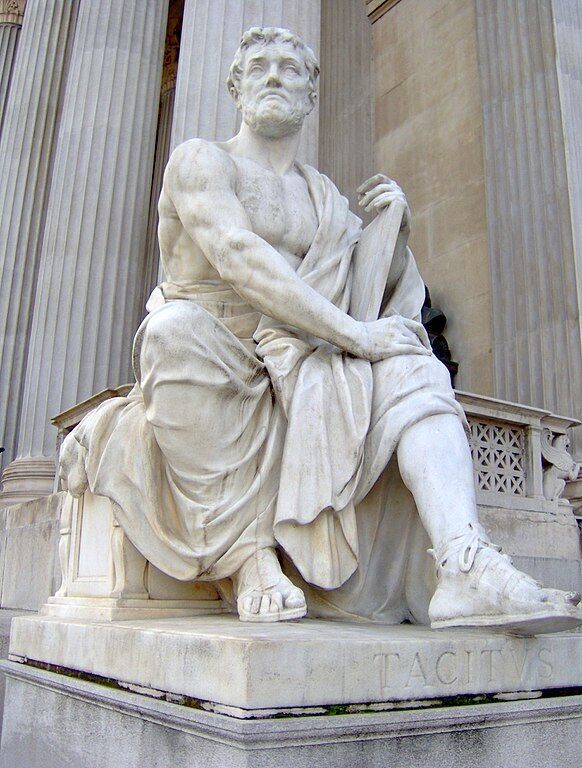
“Most authors agree that once during a plague in Egypt which caused bodily disfigurement, King Bocchoris approached the oracle of Ammon and asked for a remedy, whereupon he was told to purge his kingdom and to transport this race into other lands, since it was hateful to the gods.
“So the Hebrews were searched out and gathered together; then, being abandoned in the desert, while all others lay idle and weeping, one only of the exiles, Moses by name, warned them not to hope for help from gods or men, for they were deserted by both, but to trust to themselves, regarding as a guide sent from heaven the one whose assistance should first give them escape from their present distress.
“They agreed, and then set out on their journey in utter ignorance, but trusting to chance. Nothing caused them so much distress as scarcity of water, and in fact they had already fallen exhausted over the plain nigh unto death, when a herd of wild asses moved from their pasturage to a rock that was shaded by a grove of trees. Moses followed them, and, conjecturing the truth from the grassy ground, discovered abundant streams of water.
“This relieved them, and they then marched six days continuously, and on the seventh seized a country, expelling the former inhabitants; there they founded a city and dedicated a temple.
“To establish his influence over this people for all time, Moses introduced new religious practices, quite opposed to those of all other religions …. [The Jews] regard as impious those who make from perishable materials representations of gods in man’s image; that supreme and eternal being is to them incapable of representation and without end.”
